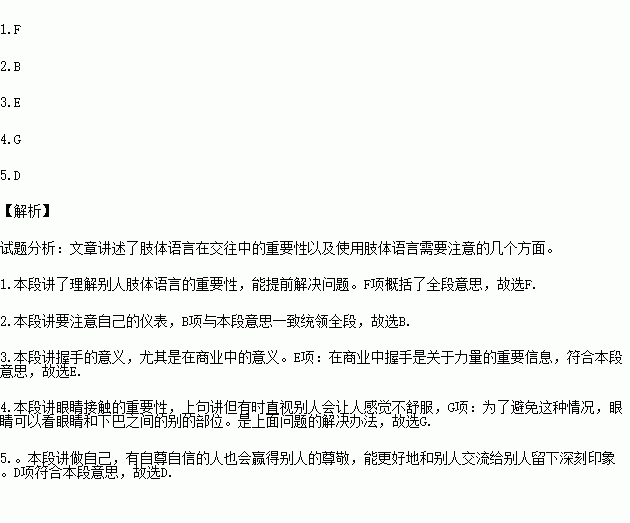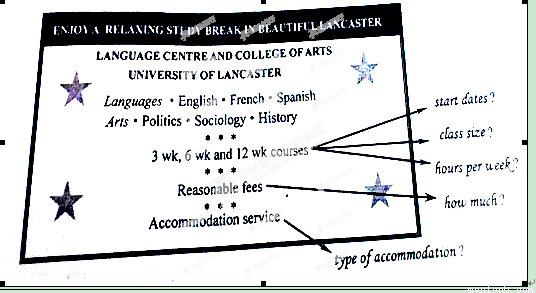题目内容
根据短文内容,从短文后的选项中选出能填入空白处的最佳选项,并在答题卡上将该项涂黑。选项中有两项为多余选项。
Every day, in hundreds of ordinary situations, actions speak far louder than words. We talk with our mouth, but we communicate with our facial expressions, our tone of voice and our whole body.
1. When we can read what others are saying unconsciously, we can deal with things---- at work and at home before they become problems.
By understanding how to use body language, you can communicate more effectively. Here is how:
2. Throughout the day, notice details about the way you speak, gesture and move. When standing, keep your shoulders straight, your body open and your weight balanced on both feet.
Work on your handshake. 3. The handshake most likely to show confidence is firm and dry with strong but not too much pressure.
Use eye contact. Eye contact is very important in forming an impression of someone. You should have the ability to keep direct eye contact if you want to be taken seriously. But some people feel uncomfortable when it is too strong. 4.
Be yourself. Nonverbal(非言语的) messages come from deep inside you, from you own sense of self-respect. If you are comfortable with yourself, they show. 5. They always give others a deep impression.
A. Use hand gestures carefully.
B. Pay attention to your body-talk.
C. A mirror can be useful to examine facial expressions.
D. People who know who they are have a relaxing way of talking and moving.
E. In the business world, the handshake shows important messages about power.
F. Understanding body language is one of the most useful skills you can develop.
G. To avoid this problem, change your focus so that you look at somewhere between the eyes and the chin.


